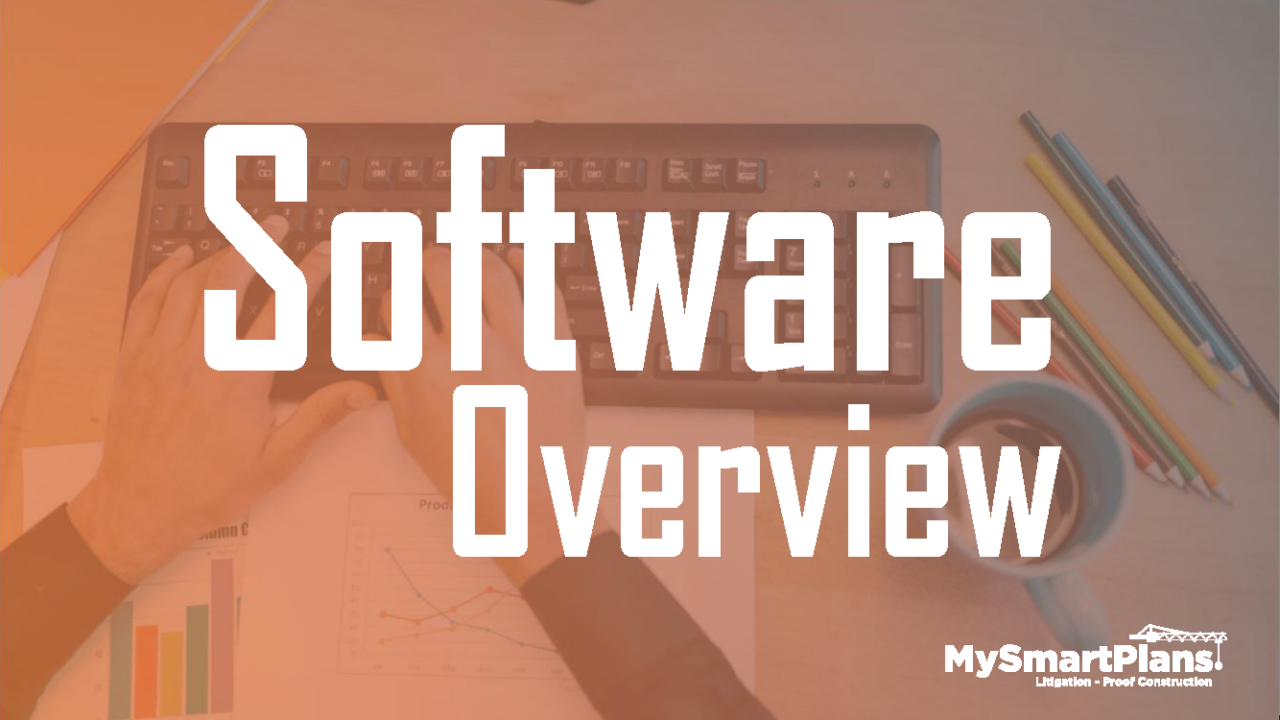MySmartPlans has saved thousands of hours in costly rework and has allowed us to collaborate with our team members in the most efficient manner possible.

Honors & Awards
Business Of The Year
Kansas Women-Owned Businesses 2017
Rule Breaker Award
New York Rule Breakers 2015
25 Outstanding Businesses Under 25 Employees
Twenty Five – 25 2012
CEO of the Year
City Union Mission 2009
Women Who Mean Business
Biz Journal 2009
Vision of Excellence
National Association of Women in Construction – 2009
About MySmartPlans

Born from Hard-Won Experience, Built for Unshakeable Control:
MySmartPlans isn’t just another software company; it’s the culmination of resilience and expertise forged in the crucible of construction chaos. Co-founders Shelley (CEO) and Dominick (President), a highly successful 45-year contractor, experienced firsthand how a single project plagued by insufficient data could unravel decades of success, forcing them to close their previous company’s doors.
They didn’t just rebuild; they reinvented construction project management to conquer the very issues that cost them dearly.
MySmartPlans delivers unparalleled project control through a unique fusion of advanced technology and dedicated human expertise. We embed an experienced Digital Information Librarian directly into your team. These specialists are far more than support; they are the catalyst for rigorous Data Governance, meticulously organizing every document and data point.
This creates radical transparency and efficiency, drastically mitigating the risks associated with poor document oversight. For 19 years, we’ve empowered clients to deliver billions of dollars in projects on time and budget, backed by an ironclad, audited project history proven to prevent costly disputes and litigation. We offer the world’s most advanced construction intelligence solution, ensuring clarity and success from groundbreaking to handover.
Honors & Awards
Business Of The Year
Kansas Women-Owned Businesses 2017
Rule Breaker Award
New York Rule Breakers 2015
25 Outstanding Businesses Under 25 Employees
Twenty Five – 25 2012
CEO of the Year
City Union Mission 2009
Women Who Mean Business
Biz Journal 2009
Vision of Excellence
National Association of Women in Construction – 2009
About MySmartPlans

Shelley Armato and Dominick Armato
Shelley is the Founder and CEO of MySmartPlans. Her husband Dominick is Co-founder and President. They suffered firsthand the effects of chaos in the industry. Dominick, a 45-year contractor, was wildly successful and one project with insufficient data caused them to shut the doors on that company. But they rose again and reinvented the construction industry by streamlining the business.
MySmartPlans is a software-as-a-service solution with an experienced digital information librarian as part of your team, who creates transparency, organization, and efficiency in construction projects. They are the driving force behind Data Governance, which mitigates the risk associated with insufficient document oversight. MySmartPlans has been improving the industry for 16 years and has a revenue aggregate of over 19 billion dollars. Build on time, on schedule, and with audited as pre-discovery files that are proven to prevent litigation!
MySmartPlans Track Record:
17 years in business
100% of our 2,130 projects were protected from litigation
$23 billion in project value completed
99.9% of projects were completed on time & on budget
18% project on-site savings
Platform Features
MySmartPlans Track Record:
17 years in business
100% of our 2,130 projects were protected from litigation
$23 billion in project value completed
99.9% of projects were completed on time & on budget
18% project on-site savings
Learn More
The MySmartPlans Manifesto
MySmartPlans has saved thousands of hours in costly rework and has allowed us to collaborate with our team members in the most efficient manner possible.

MySmartPlans helped us focus on the project rather than collection of data & documentation. The MSP team knows what needs to be included and does a great job gathering, managing and ensure timey responses on required information. It also gives us a centralized location for project documentation, giving us comfort of knowing where to find information in the future. MSP allows us to work smarter and be smarter.

Technology has made promises over the years that someday we would all be paperless and all electronic, but there has been a missing link in sharing information between groups. MySmartPlans is the medium that fills that gap.

As a construction litigator…to be able to point and click and find the documentation that relates to that specific change order, whatever, in seconds as opposed to days or weeks manually would be a game changer.

Construction projects are complex endeavors, requiring the coordination and collaboration of numerous stakeholders – architects, engineers, contractors, and subcontractors, just to name a few. Effective communication and seamless collaboration among these different teams are crucial for successful project completion. This is where technology comes in to revolutionize the construction industry.
In the past, project collaboration often involved endless paperwork, manual data entry, and cumbersome communication channels. However, with advances in technology, construction project managers and teams can now streamline their processes and ensure efficient project completion. Let’s explore how technology is enabling a new era of construction project collaboration.
Construction project management software has become an essential tool for project managers, allowing them to plan, organize, and schedule tasks and resources effectively. With these software solutions, project managers can create project timelines, allocate resources, track progress, and monitor budgets – all in one centralized platform.
By streamlining project management processes, construction project management software eliminates the need for manual tracking, reduces the risk of miscommunication, and ensures that everyone is on the same page. Real-time updates and notifications keep team members informed about any changes or issues, allowing for quick adjustments and preventing delays.
Construction projects generate massive amounts of documentation, including contracts, plans, permits, and specifications. Managing and controlling these documents can be challenging, especially when multiple teams and stakeholders are involved. Technology offers innovative solutions to streamline document management and ensure data integrity.
Cloud-based document management systems provide a secure and centralized repository for all project-related documents. This eliminates the need for physical storage and reduces the risk of data loss. With version control and access restrictions, teams can collaborate on documents in real-time, ensuring that everyone is working with the most up-to-date information.
Virtual design and construction (VDC) technologies have transformed the way construction projects are planned and executed. VDC tools enable project teams to create digital representations of buildings, allowing for better visualization, analysis, and collaboration.
For example, Building Information Modeling (BIM) is a powerful VDC technology that enables the creation of detailed 3D models of construction projects. These models contain information about the building’s structure, systems, and materials, facilitating collaboration between architects, engineers, and contractors. With BIM, teams can identify clashes, optimize designs, and resolve issues before construction begins, saving time and reducing costly rework.
Construction projects often involve work on-site, where quick access to information is essential. Mobile applications designed for construction project collaboration enable teams to stay connected and informed while on the go.
Mobile collaboration apps allow on-site workers to access plans, drawings, and documents directly from their smartphones or tablets. They can submit progress updates, report issues, and communicate with other team members in real-time. By eliminating the need for physical paperwork and manual communication, mobile collaboration apps improve efficiency and productivity.
Another advantage of technology-enabled project collaboration is the ability to collect and analyze data for insights and continuous improvement. By capturing data throughout the project lifecycle, teams can identify trends, measure performance, and make informed decisions.
For example, sensors and IoT devices installed on construction sites can collect data on temperature, humidity, and equipment usage. This data can be analyzed to optimize resource allocation, identify potential risks, and improve safety. Using analytics tools, project managers can gain valuable insights into project performance, enabling them to make data-driven decisions and drive efficiency.
As technology continues to advance, the future of construction project collaboration looks promising. Artificial Intelligence (AI) and Machine Learning (ML) have the potential to revolutionize the industry further. AI-powered algorithms can analyze vast amounts of data, predict project outcomes, and optimize construction processes. ML algorithms can learn from historical data to identify patterns and make accurate forecasts, enabling proactive decision-making.
Virtual reality (VR) and augmented reality (AR) technologies are also making their way into construction project collaboration. VR can create immersive environments for design reviews and virtual walkthroughs, allowing stakeholders to experience the project before it is built. AR overlays digital information onto the physical world, providing on-site workers with real-time instructions and information.
Technology has paved the way for a new era of construction project collaboration. With the help of construction project management software, document management systems, virtual design and construction tools, mobile collaboration apps, and data analytics, teams can streamline their processes, enhance communication, and improve project outcomes. The future holds even more exciting possibilities with AI, ML, VR, and AR technologies.
Embracing these technological advancements will empower construction project managers and teams to overcome challenges, ensure efficient project completion, and ultimately contribute to the continued growth and success of the construction industry.
So, are you ready to embrace this new era of construction project collaboration enabled by technology? How do you think these advancements will shape the future of construction projects? Share your thoughts and experiences in the comments below.
MySmartPlans is the leading software solution for construction project management, offering transparency, organization, and efficiency to ensure on-time and on-budget completion of projects. With our experienced digital information librarians and data governance capabilities, we help mitigate risks and prevent litigation in the construction industry.
A recent Oracle article, “How AI Is Reshaping Construction,” correctly identifies the transformative potential of artificial intelligence in addressing the industry’s critical challenges of labor

What Are You Really Buying with MySmartPlans? (It’s Not Just Document Management) Discover how MySmartPlans goes beyond construction document management to deliver confidence, control, and

The Construction Data Explosion Every major construction project today operates like a massive data machine. Airports, hospitals, high-rises—these projects generate not just thousands of documents,
The only third party administered construction management platform
803 Armstrong
Kansas City, KS 66101
Phone:
(816) 221-7881
Email:
shelley@mysmartplans.com
support@mysmartplans.com

Powered By EmbedPress